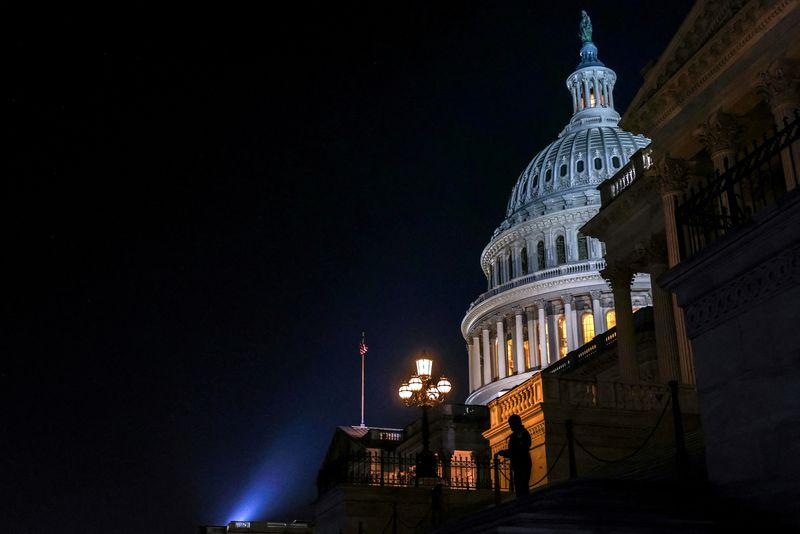By Andy Sullivan
WASHINGTON (Reuters) - The latest standoff over the U.S. debt ceiling, resolved just days before the government faced a devastating default, has prompted some to call for the country to ditch its self-imposed borrowing limit.
That's not likely to happen any time soon.
Though the showdown unnerved investors and prompted threats of a second U.S. debt downgrade in a little over a decade, proposals to abolish the debt ceiling have gained little traction in Congress in recent years.
Republicans have shown no interest in abandoning a point of leverage that they have used to win trillions of dollars in spending cuts from Democratic administrations.
"There's no other way to address the spending habits that we've got," said Republican Senator Mike Rounds.
This year's debt standoff and the past two major ones -- in 2011 and 2013 -- all played out with a similar power divide in Washington, with a Democratic president and Senate majority, and Republican control of the House of Representatives.
But Democrats did not try to abolish the debt ceiling when they controlled the White House and both chambers of Congress in 2021 and 2022. Now they lack the means to do so.
Last November, after Democrats lost their majority in the House of Representatives but before the Republican majority was sworn in, Treasury Secretary Janet Yellen warned Democratic lawmakers to deal with the debt ceiling then to avert a crisis. Her calls went unheeded.
As a result, Washington will have to confront the issue again before the current agreement expires on Jan. 1 2025.
'OUTLIVED ITS USEFULNESS'
Some budget hawks who previously supported the debt ceiling now argue that the growing dysfunction in Washington has made the risk of default too great.
"If it was ever a useful tool, it's outlived that usefulness and it's time to get rid of it," said Steve Ellis, president of Taxpayers for Common Sense, a watchdog group that dropped its support for the debt ceiling earlier this year.
The United States is one of only two industrialized countries that requires policymakers to approve payments for debts it has already incurred. The other country, Denmark, has raised its limit high enough to render it irrelevant.
"We're really the only country that does this to ourselves, and it has proven a complete failure in limiting the deficit in any way," said Democratic Representative Bill Foster, who has written legislation that would abolish the debt ceiling.
Foster's bill has drawn the support of 44 House Democrats, and he says Republicans have told him privately they support the idea. But none have endorsed it publicly.
Similar legislation in the Democratic-controlled Senate has likewise failed to pick up Republican support.
Congress has voted to raise or suspend the debt ceiling 21 times since the last time the country posted a budget surplus in 2001.
During that time, the debt load has grown from 27% of GDP to 98%, government statistics show, as lawmakers have signed off on wars, tax cuts and economic stimulus packages while expanding safety-net programs.
But the debt ceiling has occasionally proven useful as a way to force lawmakers to face the consequences of their tax and spending policies.
Congress paired several debt-ceiling hikes with bipartisan budget deals in the 1980s and 1990s that led to the balanced budgets by the end of the century.
More recently, Republicans leveraged a debt-ceiling vote to win more than $1 trillion in spending restraint from Democratic President Barack Obama in 2011, and $1.3 trillion from Biden this time around.
"The debt limit is a terrible tool to address deficits, but it's the only one we've got," said Brian Riedl, a fellow at the conservative Manhattan Institute.
Riedl and other independent budget experts have floated ways for Congress to reckon with the national debt while taking the threat of default off the table.
The Bipartisan Policy Center has suggested that the debt ceiling could be raised automatically when Congress passes an annual budget, while Riedl says the budgeting process itself should be less siloed and flexible.

Absent those reforms, many budget experts say the debt ceiling is the only way to force some sort of fiscal restraint.
"I would never just drop the debt ceiling and do nothing else in its stead. It is the only fiscal speed bump there is," said Maya MacGuineas of the Committee for a Responsible Federal Budget.